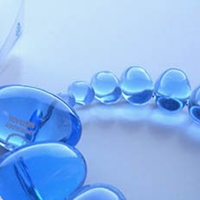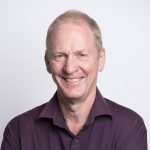Androgen physiology and therapy
Androgen physiology and therapy is a Research Project for the Clinical Andrology Research Group, under the Centre for Endocrinology and Metabolism.
Project Leader
 This research focuses on androgen physiology, the role of testosterone in ageing and metabolism and whether testosterone therapy can be used to improve health outcomes in men. The research involves several clinical interventional studies looking at a range of endpoints including quality of life, body composition and cardiovascular risk.
This research focuses on androgen physiology, the role of testosterone in ageing and metabolism and whether testosterone therapy can be used to improve health outcomes in men. The research involves several clinical interventional studies looking at a range of endpoints including quality of life, body composition and cardiovascular risk.
In order to effectively examine the therapeutic benefit of testosterone therapies in men, a first step has been to design new methods to accurately measure androgens in men, and to develop appropriate normal reference ranges for use in clinical practise.
Our research now focuses on whether testosterone treatment can be used to improve symptoms in men with a variety of chronic conditions (such as diabetes and obesity) that are associated with low testosterone levels.
We are part of an Australian multi-centre double-blind, randomised, placebo-controlled trial to determine the efficacy of testosterone treatment together with a lifestyle program to prevent progression to type 2 Diabetes Mellitus in men with pre-diabetes and low testosterone levels in comparison to a lifestyle program alone (T4DM). The study will run for five years.
The research also focuses on the role of androgen deficiency in ageing men. The research has shown that low testosterone levels in symptomatic older men are rare in the absence of co-morbidities, especially obesity, aligning with the concept of testosterone as a ‘biomarker of health’. These studies have also included placebo-controlled RCTs on the effects of testosterone supplementation in ageing men.
Another avenue of research, led by Assoc Prof Carolyn Allan is on testosterone and cardio-metabolic health.
Major collaborators:
Assoc Prof Carolyn Allan – MIMR-PHI Institute
Assoc Prof Mathis Grossmann – The University of Melbourne
Prof David Handelsman – ANZAC Research Institute
Prof Bronwyn Stuckey – The University of Western Australia
Prof Gary Wittert – The University of Adelaide
Prof Bu Yeap – The University of Western Australia
Selected publications
Allan CA, Collins VR, Frydenberg M, McLachlan RI, Matthiesson KL. (2014) Androgen deprivation therapy complications. Endocr Relat Cancer. Aug;21(4):T119-29.
Allan CA, McLachlan RI. Changing testosterone levels in ageing men Medicine Today (2013) 14(1): 46-48.
Sartorius G, Spasevska S, Idan A, Turner L, Forbes E, Zamojska A, Allan CA, Ly LP, Conway AJ, McLachlan RI, Handelsman DJ. Serum testosterone, dihydrotestosterone and estradiol concentrations in older men self-reporting very good health: the healthy man study Clinical Endocrinology (Oxford) (2012) 77 (5): 755-63
Wang, C., Ilani, N., Arver, S., McLachlan, R. I., Soulis, T., Watkinson, A. (2011) Efficacy and safety of the 2% formulation of testosterone topical solution applied to the axillae in androgen-deficient men. Clinical Endocrinology. 75(6): 836-43
Allan CA, Strauss BJ, Forbes EA, Paul E, McLachlan RI. (2011) Variability in total testosterone levels in ageing men with symptoms of androgen deficiency. Int J Androl. 34(3): 212-216
Allan CA, McLachlan RI. (2010) Androgens and obesity. Curr Opin Endocrinol Diabetes Obes. 17(3): 224-32
Sartorius, G., Ly, L.P., Sikaris, K., McLachlan, R., Handelsman, D.J. (2009) Predictive accuracy and sources of variability in calculated free testosterone estimates. Annals of Clinical Biochemistry. 46 (2): 137-143
Allan CA, Strauss BJ, Burger HG, Forbes EA, McLachlan RI. (2008) Testosterone therapy prevents gain in visceral adipose tissue and loss of skeletal muscle in non-obese aging men. J Clin Endocrinol Metab. 93: 139-146
Allan CA, Forbes EA, Strauss BJ, McLachlan RI. (2008) Testosterone therapy increases sexual desire in ageing men with low-normal testosterone levels and symptoms of androgen deficiency. Int J Impot Res. 20:396-401


